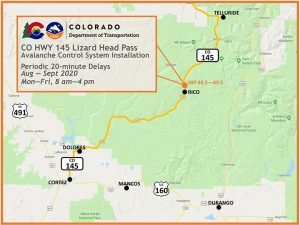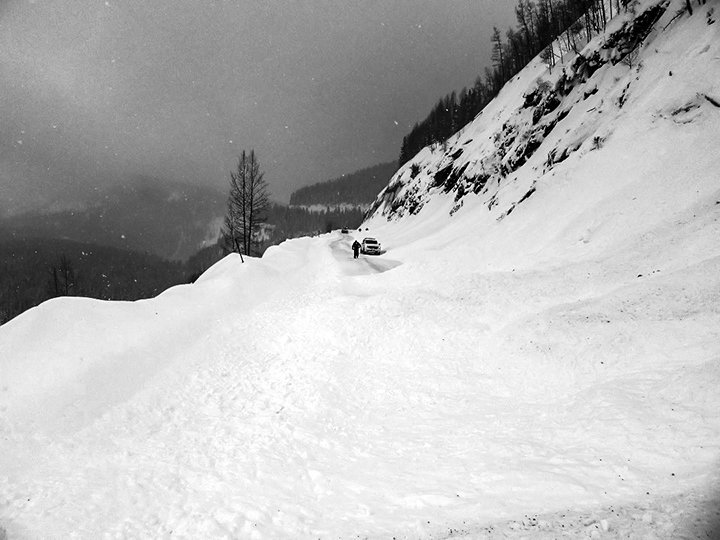RICO, Colo. — The Colorado Department of Transportation (CDOT) is working to install remotely controlled avalanche-mitigation equipment above State Highway 145 at Lizard Head Pass, about a mile north of Rico in the southwest part of the state.

Work on the project began in August and is expected to be completed this month, depending on weather. The project, expected to cost about $1.4 million, consists of installing five towers on the mountain and ridgeline above the highway. The towers will be used for the preventative, controlled triggering of avalanches at known snow slide paths in the area. CDOT is overseeing the installation of the units, performed by Wyssen Avalanche Control of Switzerland.
As part of CDOT’s Whole System — Whole Safety initiative, the new remotely controlled system will ensure a safer avalanche-mitigation program for both CDOT maintenance personnel and the travelling public. Remote systems have proven more reliable and safer for avalanche-mitigation personnel to operate. The new system will also provide more efficient and swift avalanche control operations, making travel in the area safer for motorists.
“(State Highway) 145 and Lizard Head Pass is the alternate route for travelers heading north when the U.S. 550 mountain corridor is closed for emergencies,” said Jamie Yount, winter operations program manager for CDOT. “This new avalanche mitigation system will help us keep (highway) 145 open more readily, offering a higher, more dependable level of service for motorists, particularly when avalanche conditions and cycles are occurring in the San Juan Mountains during significant winter storm periods.”
During the installation period, motorists should expect minimal traffic impacts because most work will take place off of the highway.
However, periodic full traffic closures will be required and will last for no more than 20-minute intervals, to facilitate rock scaling and helicopter operations. In addition, a speed reduction of 40 mph will be enforced through the project work zone. Travelers are advised to visit COtrip.org for updated information through the duration of the project.
Click here to visit the project webpage.
The Trucker News Staff produces engaging content for not only TheTrucker.com, but also The Trucker Newspaper, which has been serving the trucking industry for more than 30 years. With a focus on drivers, the Trucker News Staff aims to provide relevant, objective content pertaining to the trucking segment of the transportation industry. The Trucker News Staff is based in Little Rock, Arkansas.














